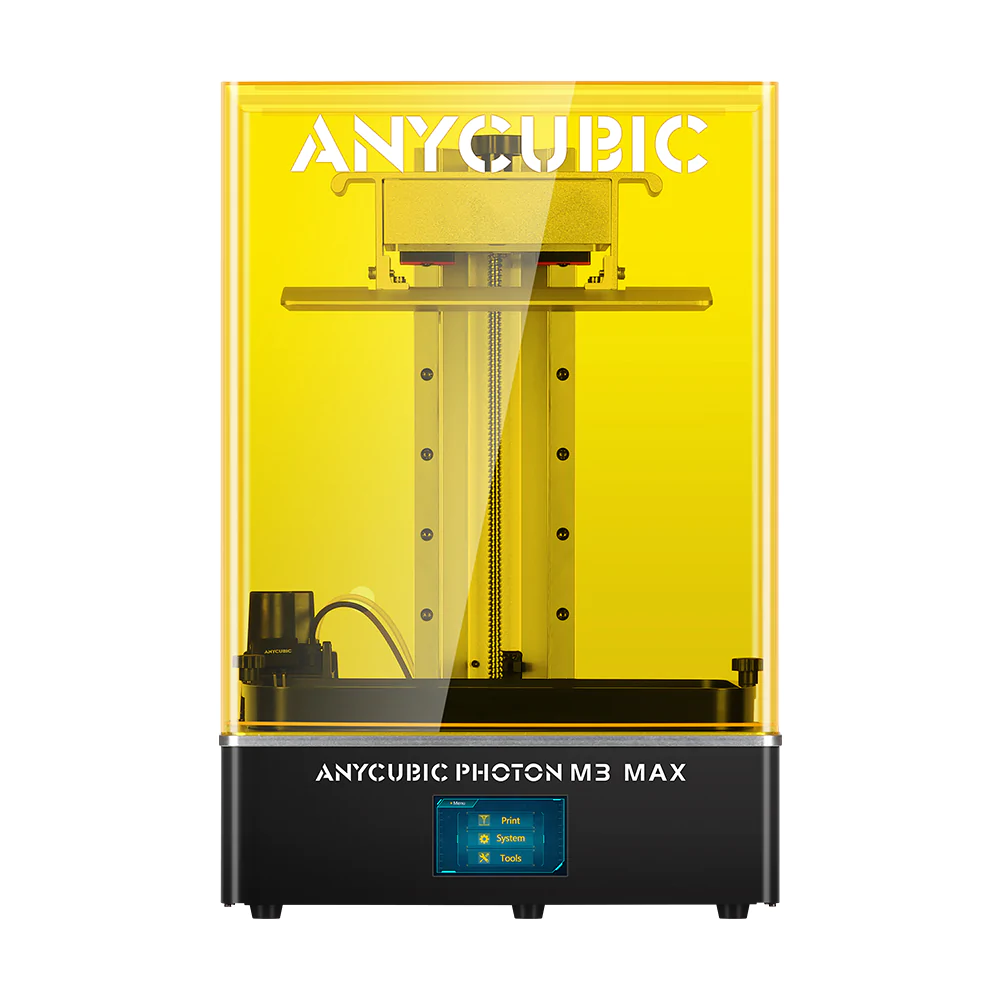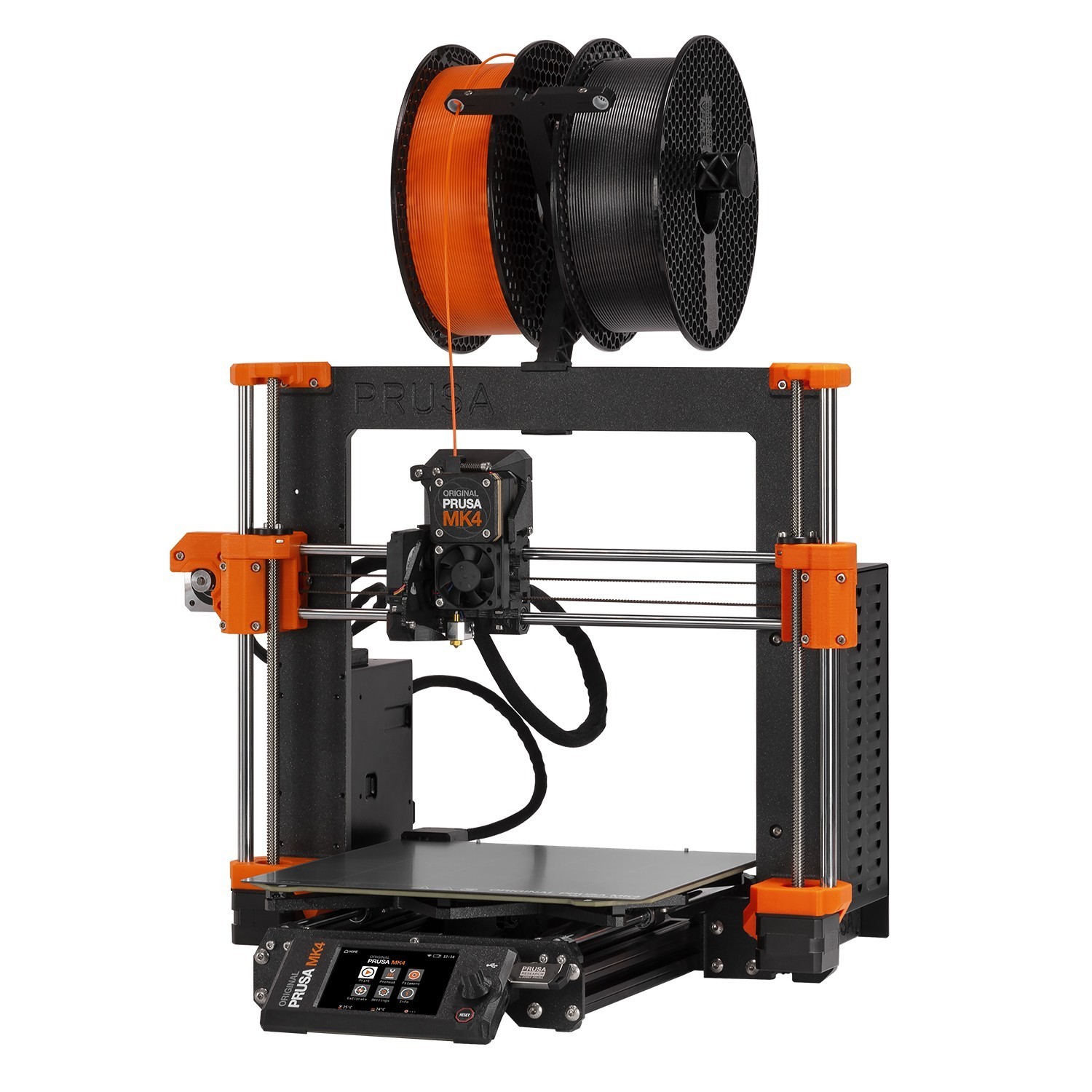Compare Photon M3 Max vs Original Prusa MK4 3D Printer
Comparison between the best 3D printers
Choose the best 3D printer at the best price. The cheapest 3D printers are here.
Buy a 3D printer here with 3D Fila.
 |
 |
|
| Model | Photon M3 Max |
Original Prusa MK4 3D Printer[BUY Original Prusa MK4 3D Printer] |
| Printing Material | Resin | Filament |
| Buy Resin for Anycubic Photon M3 Max | Buy Filament forPrusa Original Prusa MK4 3D Printer | |
| Estimated price | $960,00 | $1099,00 |
| Manufacturer | Anycubic | Prusa |
| Release Year | 2022 | 2023 |
| Print Volume [mm] | 298x164x300 | 250x220x210 |
| Printer Size [mm] | 400x408x596 | 500x400x550 |
| Weight [kg] | 21 | 7 |
| Power Loss Recovery | NO | YES |
| Maximum Resolution [mm] | 0,01 | 0,1 |
| Processor | Custom 32-bit xBuddy electronics with STM32 | |
| Display | Display touchscreen 4,3'' | Display touchscreen 3,5'' |
| Power Supply | 150 W | 240 W |
| Connectivity | USB / Wi-Fi | USB / Wi-Fi / internet via Prusa Connect |
| Operating systems | Windows, Mac, Linux | Windows, Mac, Linux |
| Date of registration in the system | 2023-01-19 | 2023-06-06 |
| Release date | 2022 | 2023 |
| Extra features | The Anycubic Photon M3 Max printer stands out for its large build volume of 298 x 164 x 300 mm, allowing the printing of large and detailed models. It has a 13.6-inch 7K monochrome screen, offering XY resolution of 46 microns, ensuring high-precision prints. It includes an innovative automatic resin refill system and a frosted glass-style FEP blade, improving part release. Its design includes a two-part acrylic cover, facilitating internal access, and a printing platform with aluminum side handles for easy handling. | The Original Prusa MK4 stands out with automatic first-layer calibration via Loadcell sensor, high-speed enabled by Input Shaper and Nextruder for precise prints. It includes quick-change nozzles, customizable UI, and Ethernet/Wi-Fi connectivity. It supports a wide range of materials, from PLA to flexibles. Equipped with a 32-bit xBuddy mainboard and precise stepper motors, it offers exceptional print quality, enhanced security, and remote printing options via Prusa Connect. |
| Support for multiple colors and materials (AMS and CFS) | NO | NO |
Notes * |
||
| Cost-benefit | 7 / 10 | 6 / 10 |
| Hardware | 3 / 10 | 2.8 / 10 |
| Tela | . | . |
| Print volume | 3 / 10 | 3 / 10 |
| Performance | 9 / 10 | 1 / 10 |
| [BUY Original Prusa MK4 3D Printer] |
Conclusion |
| In comparing the Anycubic Photon M3 Max and the Original Prusa MK4 3D printer, several key factors come into play, including pricing, performance, print quality, build volume, and additional features. The Anycubic Photon M3 Max is the more affordable option, which offers an impressive build volume, making it suitable for larger projects or intricate models. Its high maximum resolution allows for detailed prints, enhanced by features like an automatic resin refill system and a user-friendly design for accessibility. However, it lacks power loss recovery, which could be a drawback for users in areas prone to power interruptions. On the other hand, the Original Prusa MK4 justifies its higher price with several advanced features, including automatic first-layer calibration and high-speed printing capabilities. This printer supports a variety of materials and provides a robust connectivity solution, allowing for remote management and monitoring through Prusa Connect. Though it has a smaller print volume compared to the Photon M3 Max, its precision and performance in standard use cases are commendable. Considering both models, the Photon M3 Max excels in build volume and budget-friendly pricing, making it an attractive choice for those prioritizing large-scale projects and cost efficiency. Conversely, the Original Prusa MK4 may appeal to users who value automation, versatile printing options, and advanced features, despite the higher cost. Ultimately, the decision between these printers hinges on specific user needs: for larger prints and a lower price, the Anycubic Photon M3 Max is advantageous; for a blend of advanced features and reliability, the Original Prusa MK4 stands out despite its greater expense. The choice should align with the user's printing priorities and budget considerations. |

